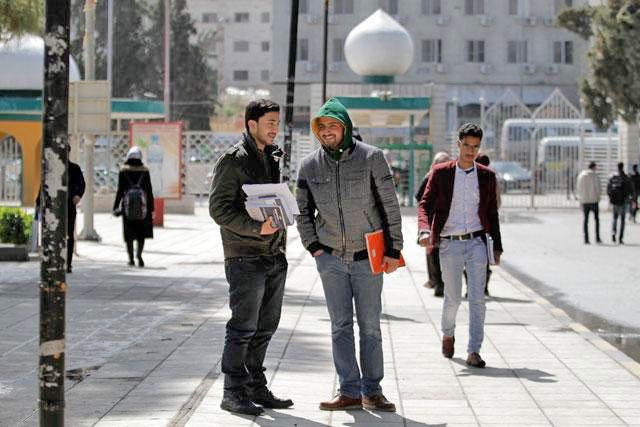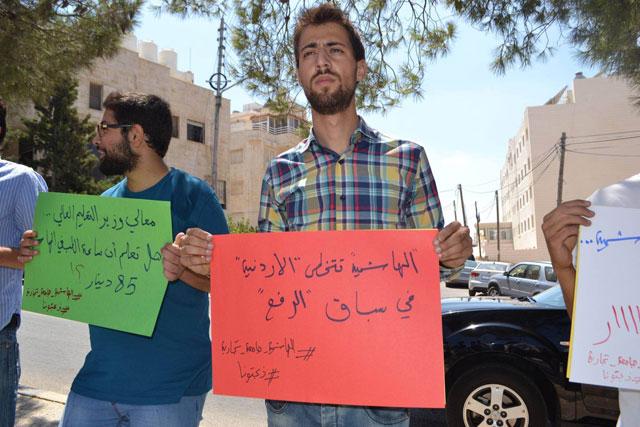You are here
Ministry’s student support fund draws mixed reactions
By Ana V. Ibáñez Prieto - Nov 27,2017 - Last updated at Nov 27,2017

A total of 46,502 students across the Kingdom have applied for the student support funds provided by the Ministry of Higher Education and Scientific Research, according to an official (File photo)
AMMAN — A total of 46,502 students across the Kingdom have applied for the student support funds provided by the Ministry of Higher Education and Scientific Research, secretary general of the ministry, Ahed Wahadni, told The Jordan Times on Sunday.
The ministry will begin the revision of all applications during this week to check that all beneficiaries comply with the requisites, initiating a process that will last for “not less than a month”, according to Wahadni.
“The results will be announced in the next six-eight weeks, and an approximate number of 37,000 students will benefit from the requested scholarships,” Wahadni continued, expressing the ministry’s hopes that “all students can understand the time that it takes to check all applications”, asking for their patience.
All students benefitting from the ministry’s funds must be Jordanian nationals registered at an official Jordanian university programme for the bachelor or intermediate diploma level through the unified admissions programme, according to the general conditions for the benefit from scholarships.
Furthermore, the beneficiaries’ grade point average (GPA) must not be less than two points or 60 per cent, except for those students enrolled in their first semester at the university.
Fakher Daas, coordinator of The National Campaign for Defending Students’ Rights (Thabahtoona), told The Jordan Times that the campaign has “its reservations regarding the criteria used by the ministry to choose which students receive the grants”, pointing out that “many students accepted through the parallel programme come from the middle class and yet pay higher fees”.
Thabahtoona’s statement was echoed by University of Jordan student Lina Awwad, who complained that “the ministry is not taking into consideration any of the students in the parallel programme, regardless of our financial situation or our GPA”, pointing out that “if they really want to help the most outstanding students, they should be looking at our grades, and not the way through which we entered the university”.
“The whole system is pushing all universities to accept more and more students in the parallel programme, and the universities benefit from us knowing that we are not eligible for a scholarship,” Awwad continued, noting that “most of us [students accepted through the parallel programme] end up having to work in order to pay our education, or directly dropping out of school”.
“Moreover, the Jordanian nationality requirement leaves thousands of Syrian and Palestinian students without the chance of accessing a scholarship, not to mention the limits on their chances to get a job to pay the university fees,” the student added.
Responding to the complaints, Wahadni remarked that “the system was planned according to a by-law, where the parallel programme was not included as the fund was meant to support the most disadvantaged Jordanians”.
“It is a scoring point system, and both financial and academic statuses are considered,” Wahadni added.
“The scholarships are aimed at supporting all those excellent students in a complicated financial situation in order to relieve them from the economical burden and let them continue their education,” Wahadni concluded.
Related Articles
AMMAN — The Directorate of Scholarships at the Higher Education Ministry on Sunday will announce the list of students covered by the support
AMMAN — The Ministry of Higher Education on Tuesday announced the allocation of 100 scholarships available for students accepted in Sharia (
AMMAN — Students at the Zarqa-based Hashemite University staged a sit-in on campus on Thursday to protest increases in post-graduate tuition












